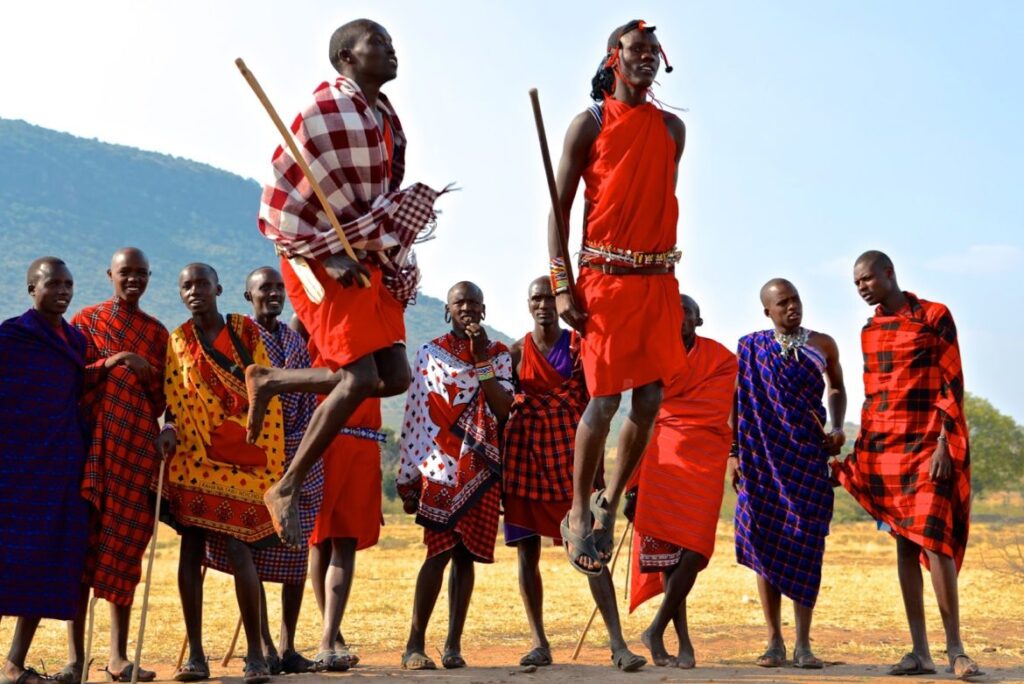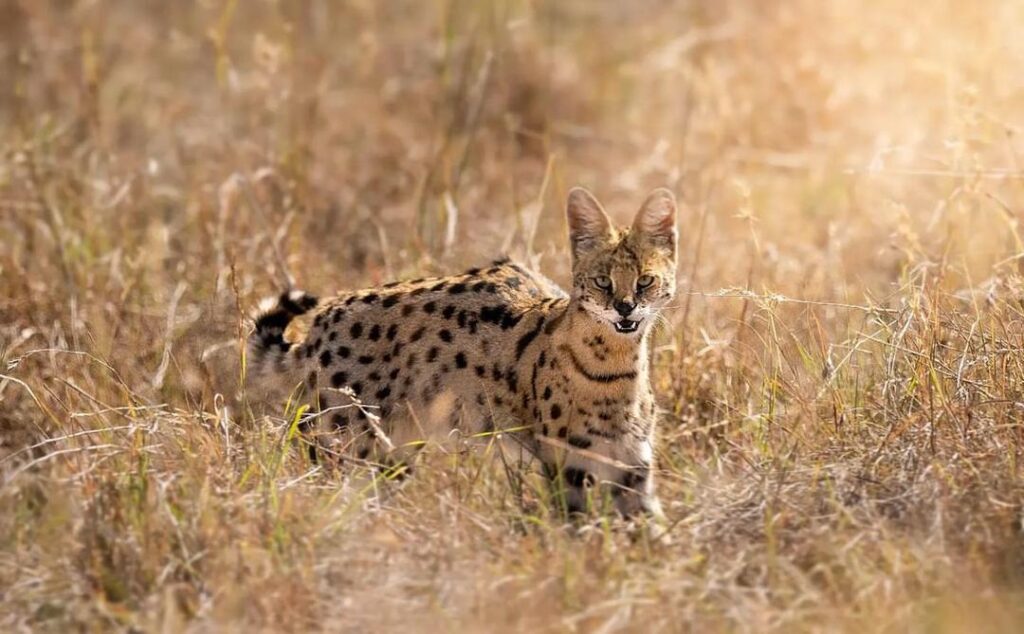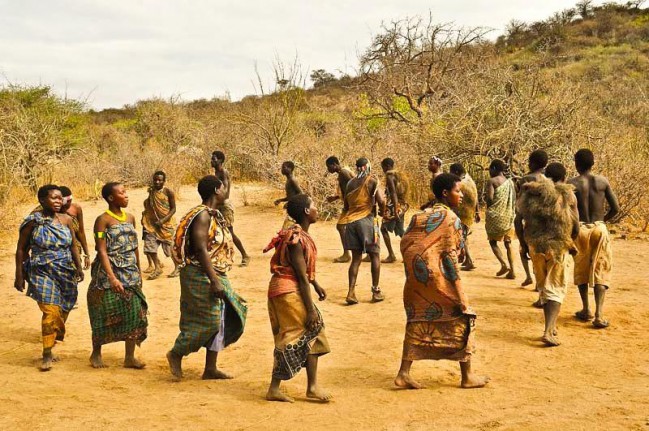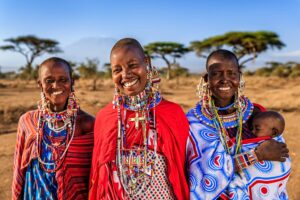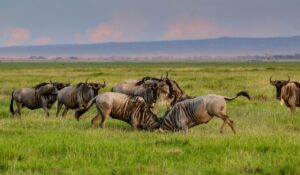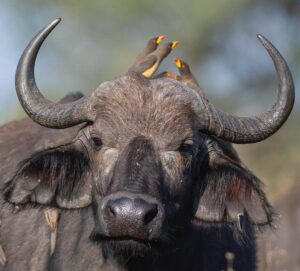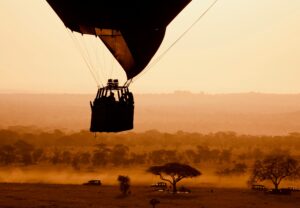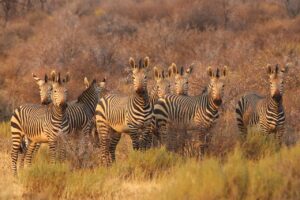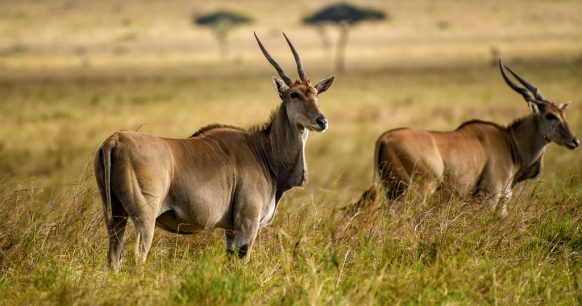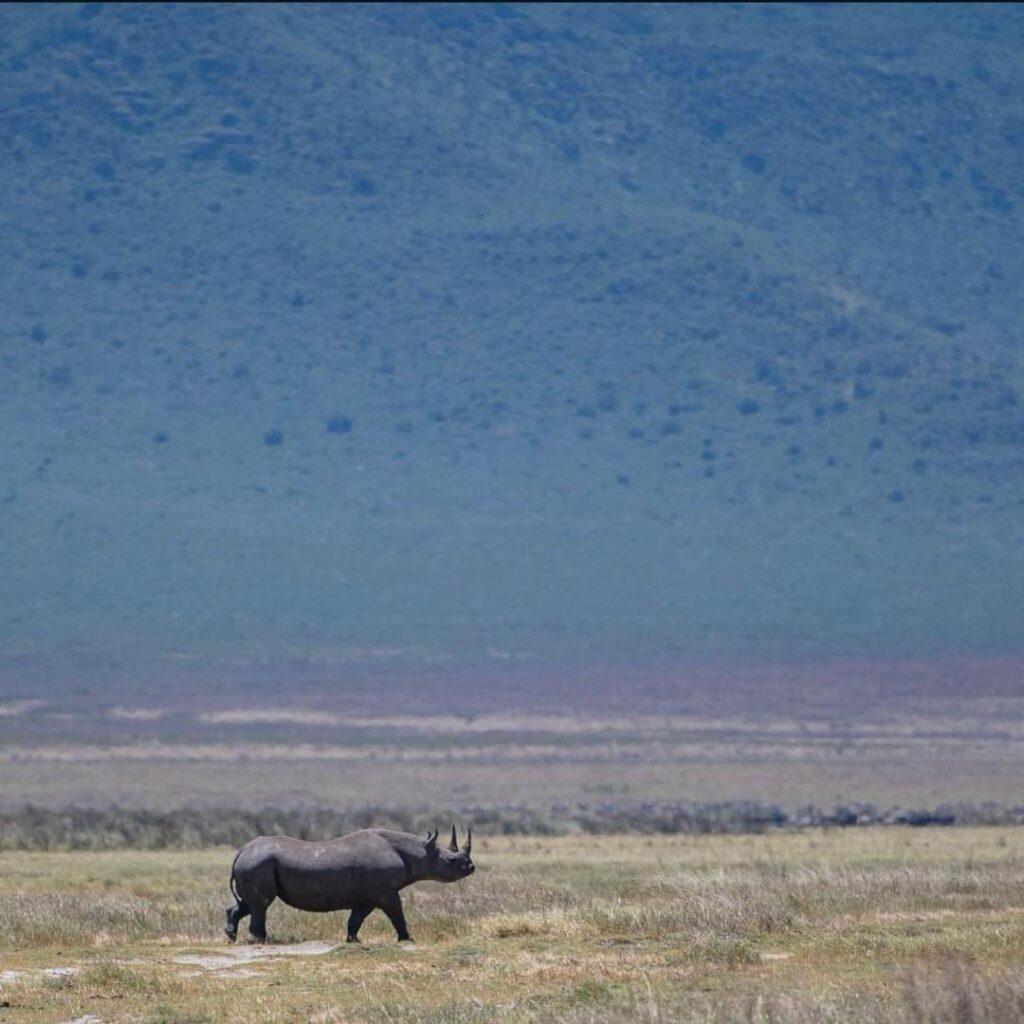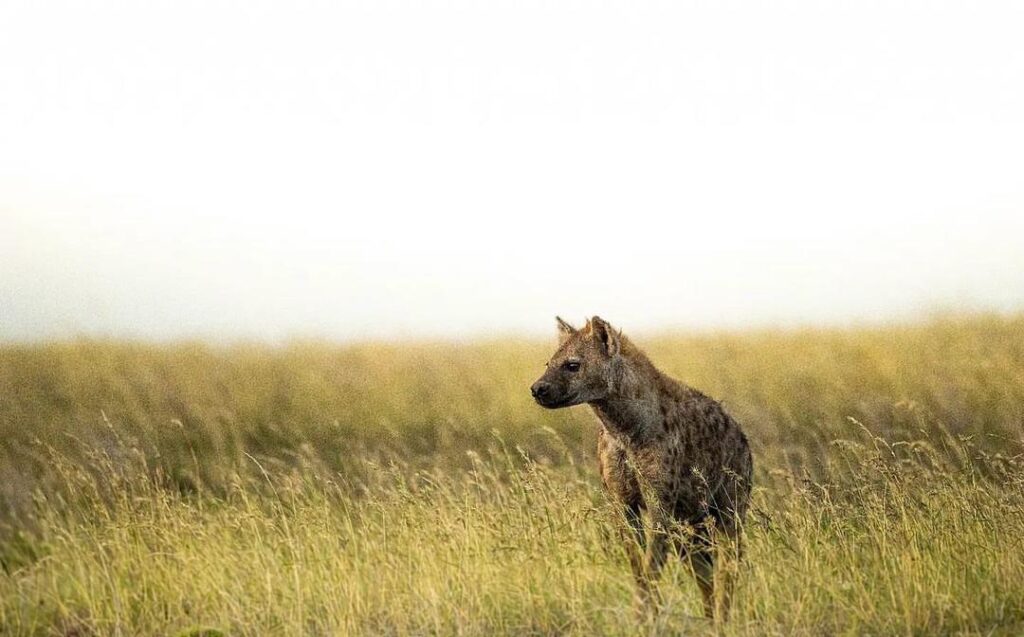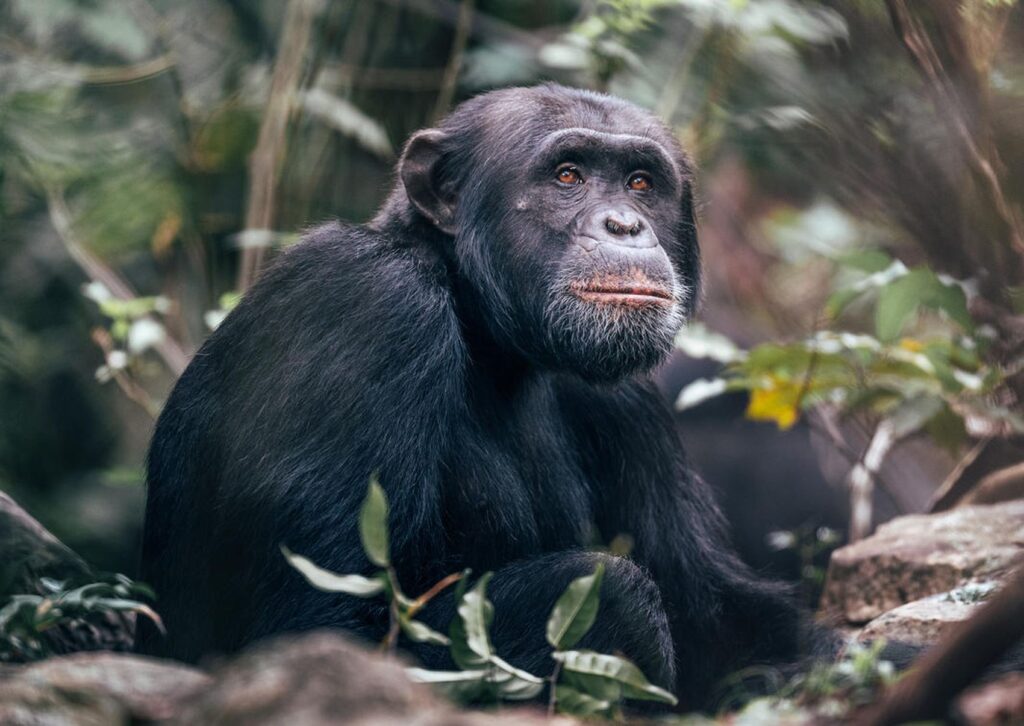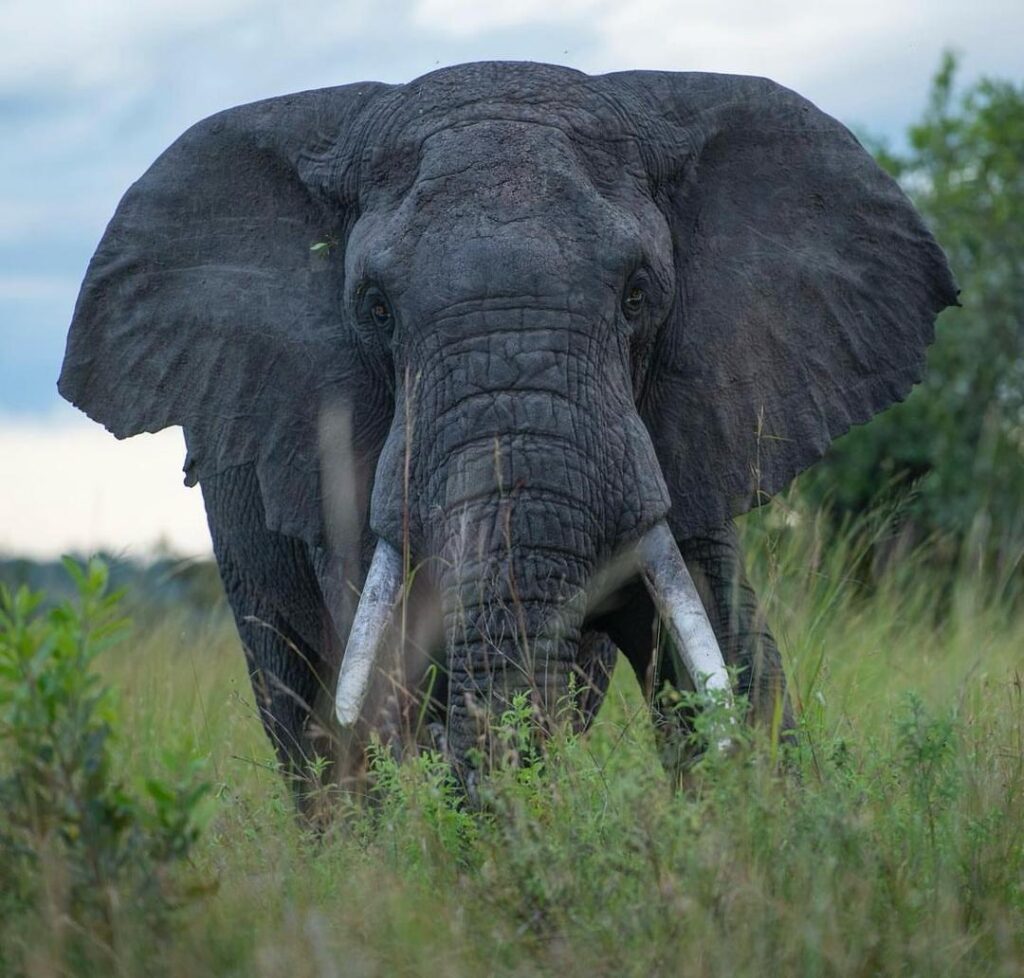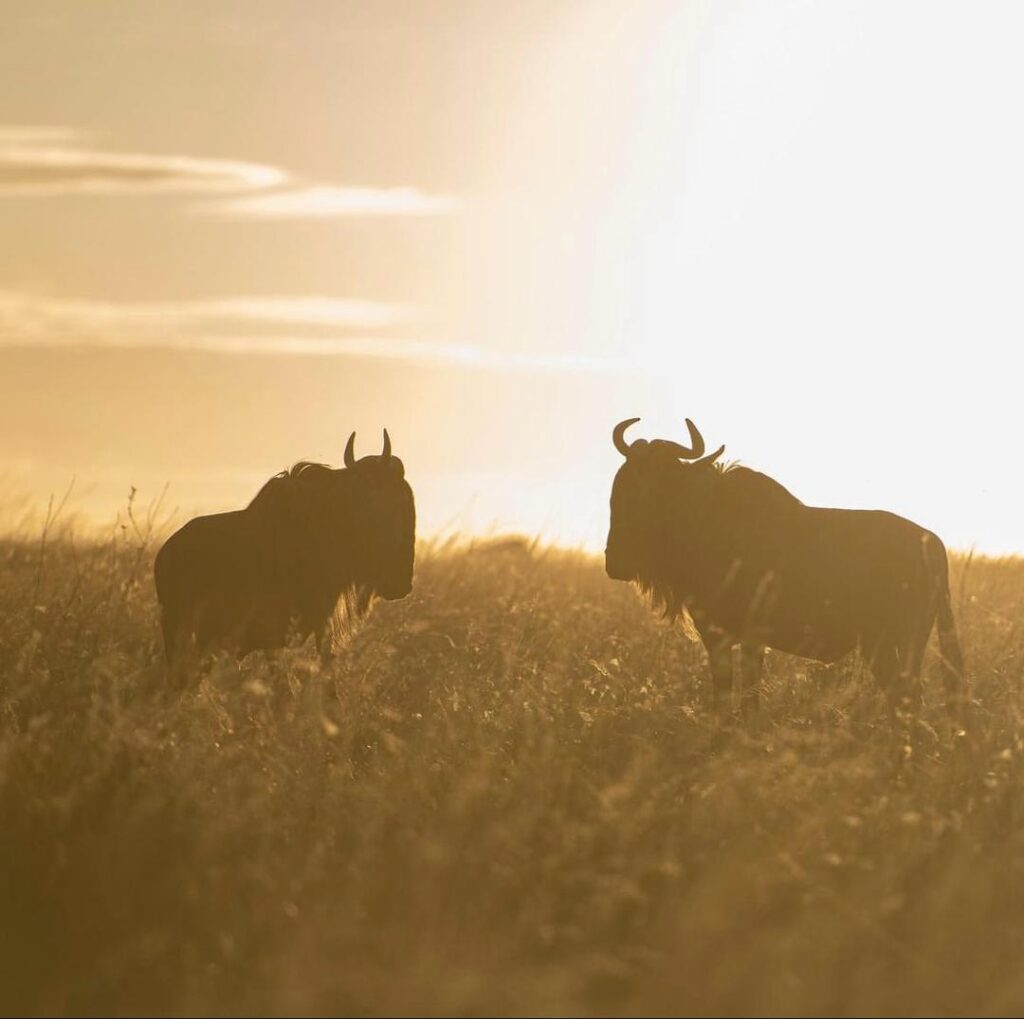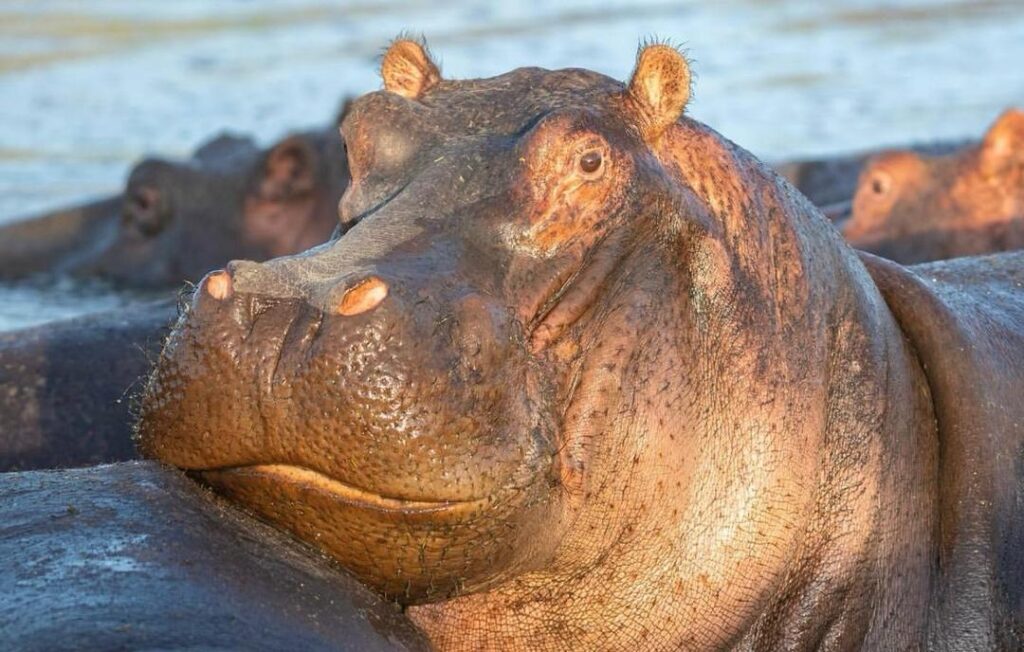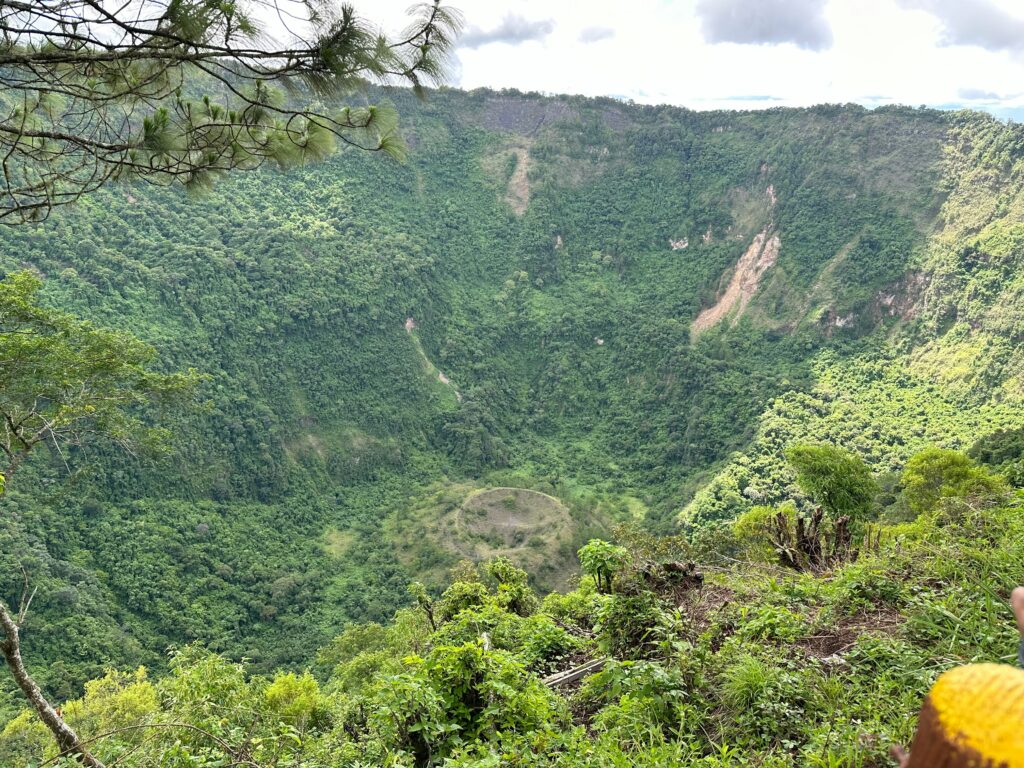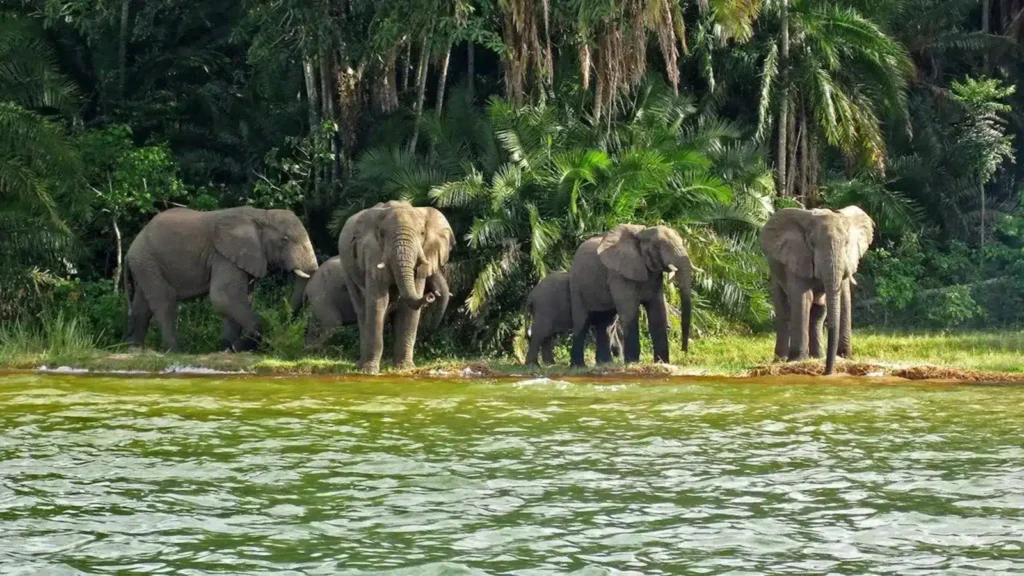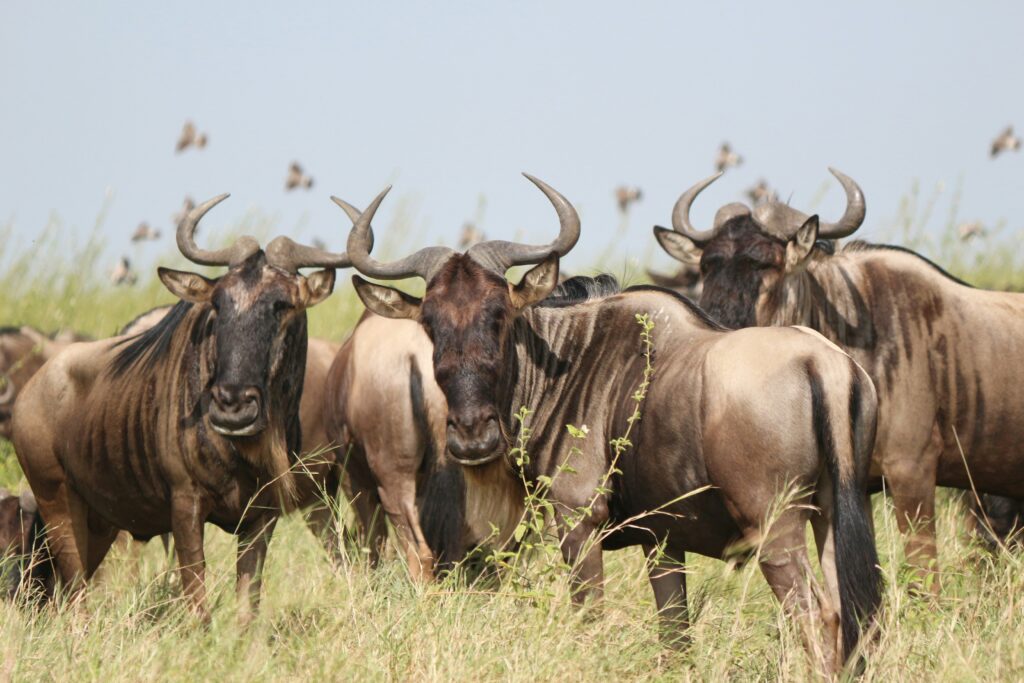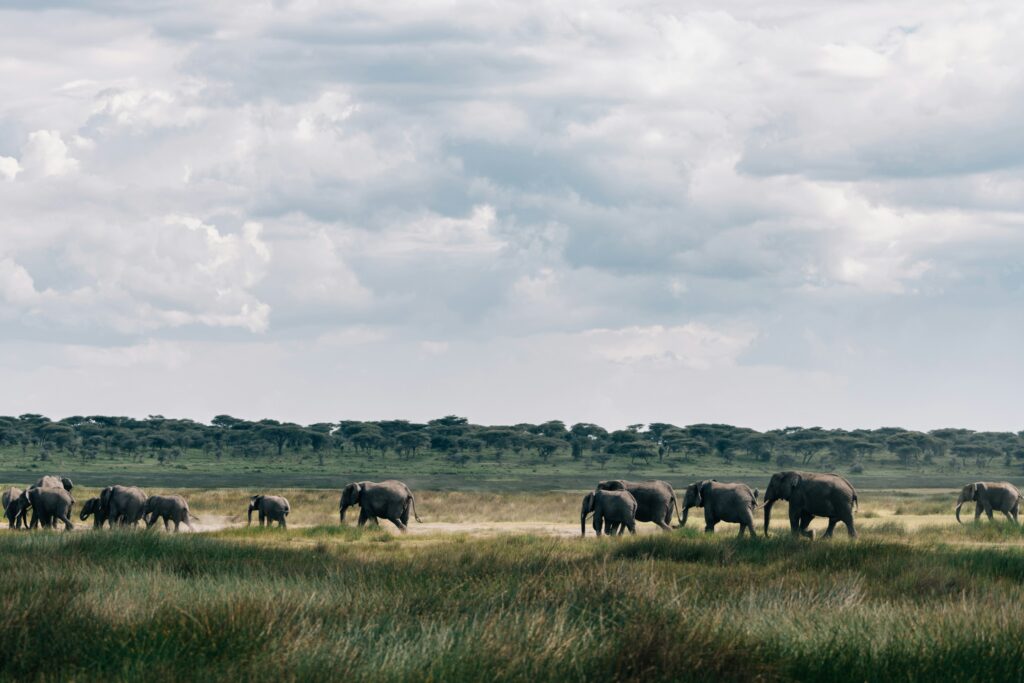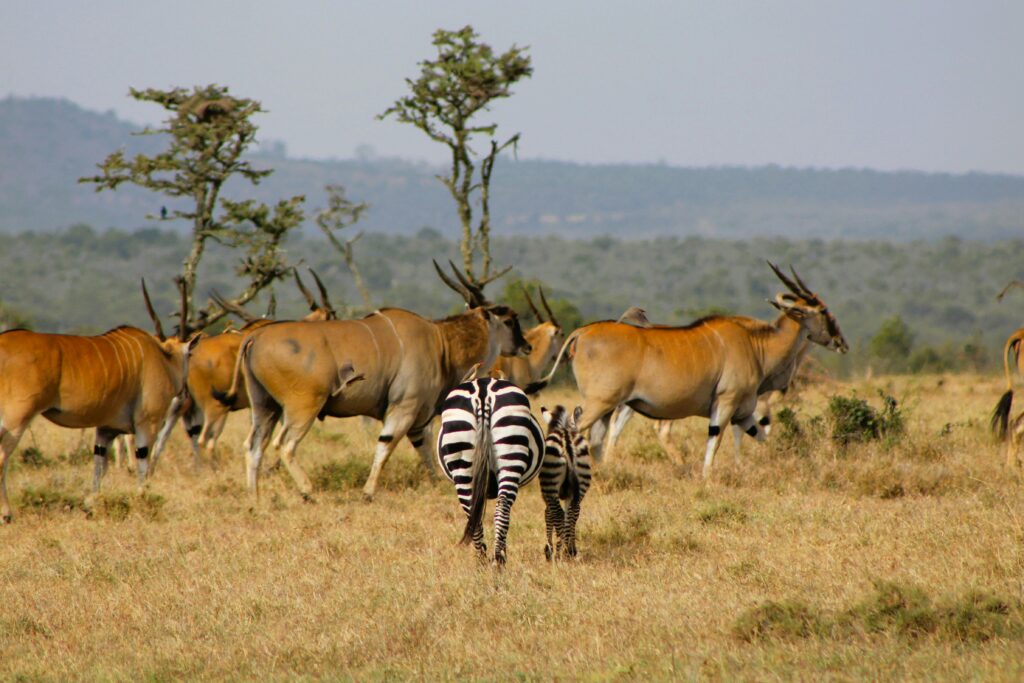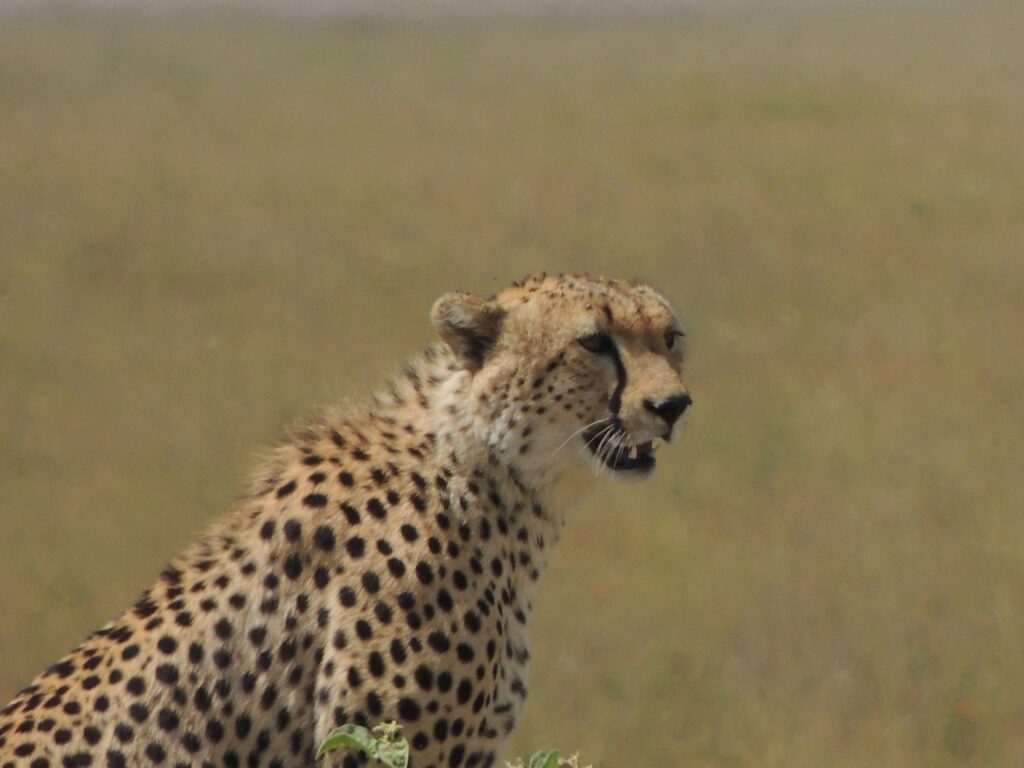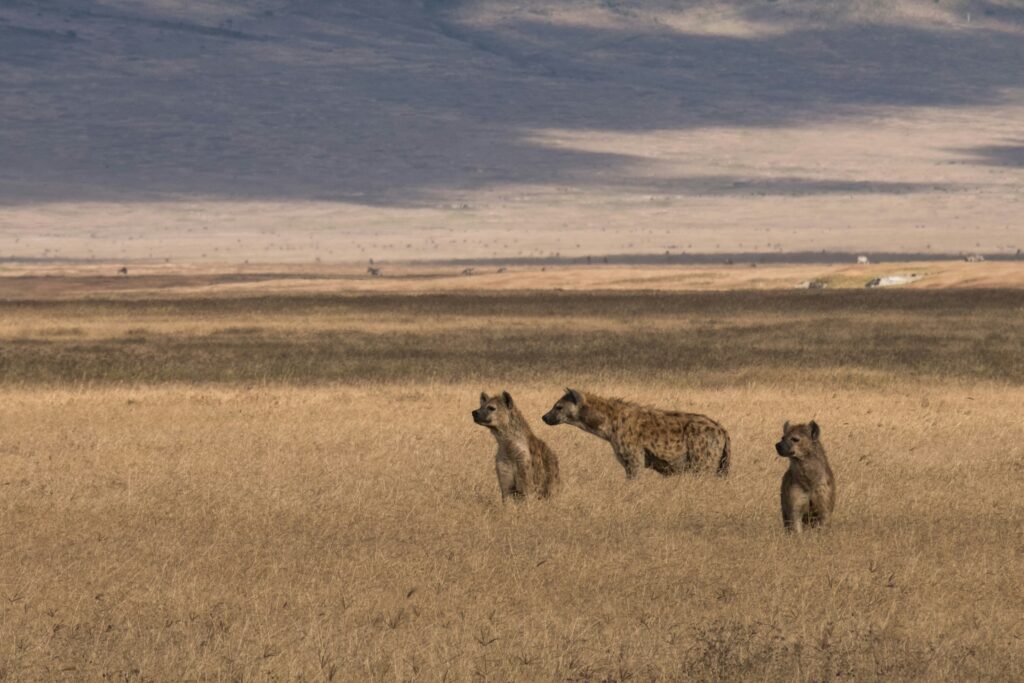Overview
A rich and immersive journey through Tanzania’s diverse landscapes, people, and wildlife. This itinerary combines iconic safaris with cultural insights and scenic wonders, making it ideal for travelers wanting more than just game drives. From the bustling markets of Arusha to the stillness of Lake Eyasi and the drama of the Serengeti, this is the full Tanzanian experience.
Itinerary
You’re welcomed at the airport and transferred to your lodge. Spend the afternoon resting or exploring a local coffee estate.
Visit Arusha town’s vibrant markets and the Cultural Heritage Center. In the afternoon, head to the edge of Arusha National Park for a relaxed nature walk or canoeing experience.
Drive to Tarangire for your first game drive. See elephants, giraffes, and lions among ancient baobabs. Stay overnight in a lodge overlooking the park.
Travel to Lake Eyasi for an immersive cultural day. Meet the Hadzabe tribe, Tanzania’s last true hunter-gatherers, and learn survival skills. Visit the Datoga blacksmiths and experience traditional ways of life.
Explore Lake Manyara, known for its flamingos and tree-climbing lions. Enjoy a scenic picnic and short walking safari in the forested areas of the park.
Travel through the highlands with stops for photo opportunities. Visit a Maasai village before arriving at your eco-lodge on the crater rim.
Descend into the crater for a full-day safari. The rich ecosystem makes it easy to see rhinos, lions, elephants, and more. Return to the lodge for a relaxed evening.
Enter the Serengeti via Olduvai Gorge, a world-renowned archaeological site. Begin your first game drive en route to your lodge or tented camp.
Spend two days exploring different zones of the Serengeti, from woodlands to wide plains. Track cheetahs, watch lions in action, and enjoy sundowners in the bush.
After a morning drive, fly back to Arusha. Enjoy a farewell dinner and overnight at a comfortable lodge.
After breakfast, transfer to Kilimanjaro International Airport for your onward journey.
Cost
The Cost Includes
- All accommodations in lodges and tented camps
- All meals during safari
- Safari vehicle and English-speaking guide
- Cultural excursions as noted
- Domestic flight from Serengeti to Arusha
- All park fees and transfers
The Cost Excludes
- International airfare
- Tips and personal expenses
- Visa and insurance
FAQs
Annapurna Base Camp is a Grade B or a moderately difficult trekking route. So any fit person can do this trek, even if you do not have any previous experience. You should be aware of what to expect and mentally prepare for it. Then, as long as you will too, you can.
On average, you walk about 4 to 6 hours per day. One or two days can be as less as 3hrs and one or two days can be as long as 7hrs.
The highest altitude reached is 4190m. This is the elevation of Annapurna Base Camp. ABC is the highest we will climb in this trek.
Yes, you can charge batteries en route. Charger should be brought. There are hot shower facilities as well. You may have to pay a certain amount for both ($1-$2). Negotiate. Also, a hot water facility could be free at a lower elevation.
No. There are no ATMs on this trek route. You will have to draw enough cash in Pokhara or Kathmandu. There are a number of ATMs in these cities. Everything is paid in Nepali rupees. So money should be exchanged before the start of the trek.
Yes. The Internet can be accessed in most places. Sometimes, there might be some technical problems. The Internet in Nepal is not as fast as you are used to and at times you can just lose connection.
Not really. It depends on you. If you want, ABC trekking can be done independently. You could hire a guide and a porter by yourself instead of going through an agency or not hire a guide at all. Although, not having a guide can be a little problematic during the offseason.
It really depends on you. Is it your first time in Nepal? How confident are you of being able to find your way around? How pressed on time are you? If you go through an agency, it will be costlier but everything will be planned. You will only have to come, trek and return.
For the Annapurna region, pay for guides range from $20 to $30 per day and porters take $15 to $25 per day.





